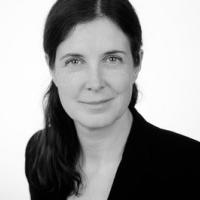A Transatlantic Exchange on the German "Energiewende"
- Event
- Date
-
- Location
- Berlin, Germany
- Speaker
-
Jeffrey Ball (Wall Street Journal, Stanford University)Enno Harks (BP Europa SE, Global Public Policy Institute in Berlin)Dr. Petri Hakkarainen (Institute for Advanced Sustainability Studies e.V. (IASS))
At a special event, the "Climate Talk" series starred Jeffrey Ball, Scholar–in–Residence at Stanford University and former Environment Editor at the Wall Street Journal; Enno Harks, Senior Political Advisor with BP; and Dr. Petri Hakkarainen, Senior Fellow at the Institute for Advanced Sustainability Studies (IASS). The event featured a truly transatlantic exchange on the German "Energiewende". It was moderated by Dr. Camilla Bausch of the Ecologic Institute.
The Climate Talk series is an initiative of the Ecologic Institute and the SWP. At this special event, researcher and journalist Jeffrey Ball interviewed the two panelists Enno Harks and Dr. Petri Hakkarainen. Their initial statements and answers to the questions kick-started a lively and partly controversial debate also with the audience over the German Energiewende.
Securing a sustainable energy supply at global and at national level is one of the greatest challenges of this century. In 2010, the German government adopted an Energy Concept which set out a strategy until 2050 aiming for an "environmentally sound, reliable and affordable energy supply". This strategy comprised amongst others measures for the development of renewable energy sources, power grids and energy efficiency. Following the Fukushima catastrophe in 2011, however, the role of nuclear power within the concept was reassessed. Eight nuclear power plants were shut down permanently and the energy sector transformation was expedited through a new legislative package, which included rules for phasing out nuclear power by 2022. The new legislation was created to supplement the original package of measures and speed up its implementation e.g. by finding new sources for financing the Energiewende and allowing for an accelerated development of power grids.
However, the transformation towards a sustainable, nuclear-free, low carbon energy system raises challenges for all actors involved. This includes technical and economic difficulties as well as political challenges. The panel interview and subsequent discussion centered on the implications of the German "Energiewende" for grid operators, renewable energy industries and regulators.
The discussion touched on key questions like: What are the costs of the energy transition? Who should carry the burden of transformation? Who was able to profit from the transformation so far? Why does the Energiewende find such a broad public support in Germany and will this support pertain? What are the differences regarding institutional structures and public perception across the Atlantic?
The participants of the event discussed challenges of a decentralized renewable energy production as well as the issue of social acceptance. A lively debate arose over the possibility to share the burden in a socially fair and acceptable way. In this context, the question of potentially replacing the feed-in system with a tax was debated controversially.
Another major area of the talk focused on the history and unique nature of the environmental movement in Germany, which made the Energiewende possible. When comparing the conservative parties in Germany and the United States, it was argued that unlike in the U.S., concern, investment in, and political motivation for environmental protection as well as a general openess to regulatory measures are an integral part of the conservative agenda in Germany.
The last major point of the interactive discussion was about whether heavy investment in today’s technology was a better choice than focusing financial resources towards R&D.





